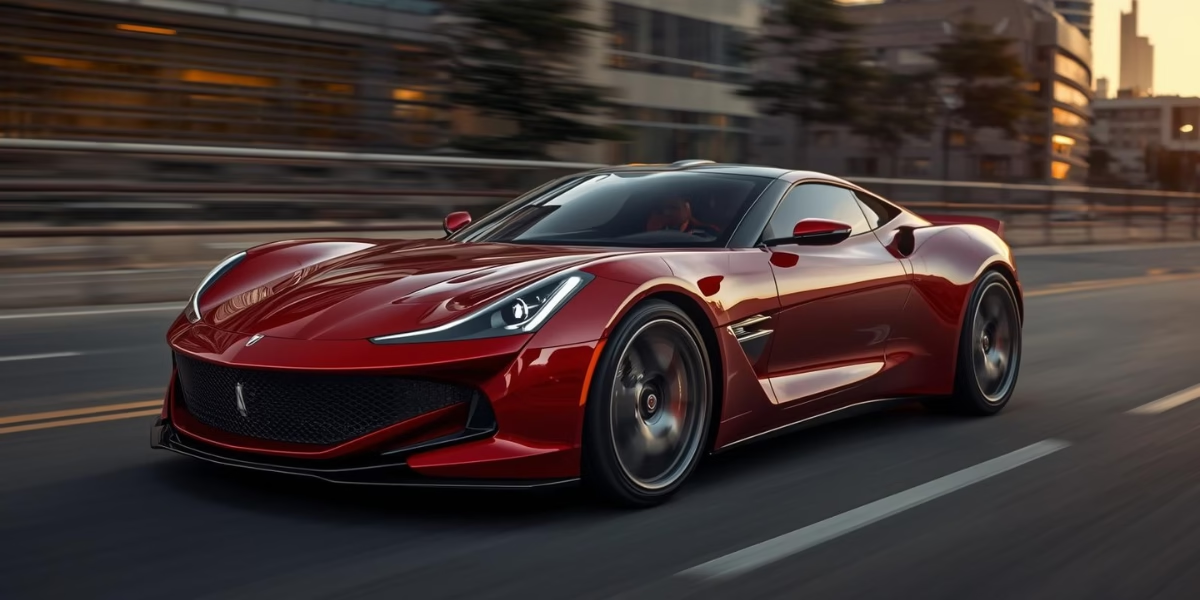Discover how DMC Resin powers lightweight, durable, and heat-resistant auto components for electric and conventional vehicles. Learn why it’s driving the next generation of automotive innovation.
Innovation at the Core of Mobility
The global automotive industry is evolving faster than ever. Electric vehicles (EVs), hybrid systems, and high-efficiency engines demand materials that can handle heat, stress, and performance, all while reducing weight. Traditional metals no longer meet these goals efficiently.
Known for its exceptional heat resistance, mechanical strength, and lightweight structure, DMC Resin is now driving innovation in both electric and conventional vehicles. It allows automakers to design components that are tougher, lighter, and ready for the road of the future.
What Is DMC Resin?
DMC Resin is a type of thermosetting composite made from unsaturated polyester or vinyl ester resin combined with chopped glass fibers, fillers, and other additives. The result is a moldable dough-like compound with excellent electrical insulation, strength, and thermal stability.
Once molded and cured, DMC Resin forms rigid components with superior dimensional accuracy and resistance to heat, moisture, and chemicals.
Because of these qualities, it is widely used in automotive electrical housings, connectors, lamp reflectors, under-the-hood parts, and EV battery casings.
Why DMC Resin Is Transforming the Automotive Industry?
The shift toward electric mobility and energy efficiency requires materials that can do more with less. DMC Resin meets these requirements perfectly by offering:
- Lightweight construction for energy savings.
- High heat resistance for under-the-hood and high-voltage applications.
- Superior mechanical strength for safety and durability.
Let’s explore these benefits in more detail.
Lightweight Yet Strong-Perfect for Next-Gen Vehicles
Reducing vehicle weight improves performance and fuel efficiency. In electric vehicles, it also extends battery range. DMC Resin is significantly lighter than metals like aluminum or steel yet maintains high structural integrity.
Its excellent strength-to-weight ratio allows manufacturers to replace heavier metal parts without compromising durability. This makes it an ideal choice for battery enclosures, motor housings, and interior components.
Moreover, DMC Resin’s moldability allows complex designs that reduce assembly steps and simplify production which is a big advantage for automakers seeking efficiency.
Exceptional Heat Resistance
Modern engines and EV components generate intense heat, especially in areas near motors, converters, and electrical connectors. Traditional plastics often deform or degrade under these conditions.
DMC Resin stands out with its high thermal stability and heat distortion temperature. It can withstand continuous operation in high-temperature environments without losing mechanical strength.
This makes it perfect for:
- EV battery modules and connectors
- Under-the-hood components like heat shields and housings
- Lighting systems and reflectors exposed to high heat
Its ability to perform reliably under extreme conditions ensures longer component life and improved vehicle safety.
DMC Resin Offers Electrical Insulation and Flame Resistance
For electric vehicles, electrical insulation is critical. DMC Resin offers excellent dielectric properties, preventing current leakage and ensuring safety in high-voltage systems.
Additionally, it exhibits flame-retardant behavior, meaning it resists ignition and prevents flame spread. This property enhances safety in both EV battery systems and engine compartments of conventional vehicles.
These qualities make DMC Resin the go-to material for electrical housings, terminal blocks, and control unit casings.
Superior Dimensional Stability
Vehicle parts are often exposed to vibration, temperature swings, and mechanical stress. DMC Resin maintains its shape and performance even under constant strain.
It resists warping, cracking, and deformation; a key requirement for precision components such as mounting brackets, motor covers, and gear housings.
This dimensional stability ensures consistent performance throughout the vehicle’s lifespan, even in demanding environments.
Corrosion and Chemical Resistance
Automotive environments expose materials to moisture, oil, and road chemicals. Metals corrode, while some plastics degrade. DMC Resin, however, resists corrosion and chemical attack, maintaining surface integrity over years of use.
This feature makes it ideal for exterior and undercarriage components that must endure rough weather and exposure to automotive fluids.
Applications of DMC Resin in Automotive Design
DMC Resin finds use in a wide range of auto components, including:
- EV battery housings and covers
- Motor brackets and insulating plates
- Headlight reflectors and lamp housings
- Ignition and switch housings
- Connector blocks and fuse boxes
- Under-the-hood structural components
Each application benefits from the resin’s balance of strength, heat resistance, and electrical insulation.
A Step Toward Greener Mobility
Sustainability is a growing priority in the automotive world. DMC Resin supports this shift by enabling lightweight components that extend EV range.Its durability means fewer replacements and less waste. As automakers aim to reduce carbon footprints, DMC Resin offers a sustainable pathway without sacrificing performance.
DMC Resin vs. Traditional Materials
Clearly, DMC Resin combines the best attributes of metal and plastic. It is lightweight, strong, heat-resistant, and versatile making it ideal for modern automotive engineering.
DMC Resin in Future Mobility
As electric and hybrid vehicles continue to evolve, DMC Resin will play an even larger role. Its adaptability allows engineers to design smarter, safer, and more efficient components.
From lightweight EV battery enclosures to high-voltage connectors, it ensures the perfect balance of strength, safety, and sustainability, qualities that define the next generation of mobility.
Concluding Thoughts
In the race toward electric and efficient transportation, materials matter as much as mechanics. DMC Resin is at the forefront, enabling engineers to design vehicles that are lighter, safer, and more heat-tolerant.
Whether it’s shielding EV batteries from heat or supporting the strength of under-the-hood systems, DMC Resin proves to be the backbone of modern automotive innovation, truly driving the next generation.
COMPANY INFO
Website: www.crestresins.com
Phone: +91 9879233188
Email: enquiry@crestresins.com
Address: 605/A, 6th Floor, Tower D, Times Square Grand Office, Sindhubhavan Marg, Near Taj Hotel, Ahmedabad, Gujarat - 380059

